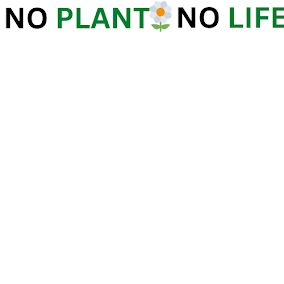Gardening enthusiasts are always on the lookout for natural, cost-effective solutions to boost plant health and productivity.
Epsom salt, scientifically known as magnesium sulfate, has emerged as a remarkable secret weapon for gardeners.
Derived from the mineral-rich waters of Epsom, England, this humble compound offers a plethora of benefits that can transform your garden.
Here are nine unbelievable benefits of using Epsom salt in your garden.
1. Enhanced Plant Growth
Magnesium is a vital component of chlorophyll, the green pigment in plants that facilitates photosynthesis.
By adding Epsom salt to your garden soil, you provide an immediate boost of magnesium, which enhances photosynthesis and, in turn, promotes robust plant growth.
This results in healthier, lusher plants with vibrant foliage.
2. Improved Nutrient Uptake
Plants require various nutrients to thrive, and magnesium plays a crucial role in the uptake of other essential nutrients, such as nitrogen and phosphorus.
Epsom salt improves the efficiency of nutrient absorption, ensuring that your plants get the maximum benefit from fertilizers and soil nutrients.
3. Increased Seed Germination
Epsom salt can be particularly beneficial during the early stages of a plant's life.
Soaking seeds in a solution of Epsom salt before planting can enhance seed germination by providing a readily available source of magnesium, which is crucial for young seedlings' development.
4. Greener, Healthier Foliage
Magnesium deficiency often manifests as yellowing leaves, a condition known as chlorosis.
Regular application of Epsom salt can prevent and correct this deficiency, leading to greener, healthier foliage.
This is especially beneficial for plants like roses, tomatoes, and peppers, which are prone to magnesium deficiency.
5. Sweeter, More Productive Crops
For fruiting and flowering plants, magnesium is essential for the production of chlorophyll and for fruit and flower development.
By using Epsom salt, you can increase the yield and improve the flavor of crops like tomatoes, peppers, and fruit trees.
The additional magnesium helps plants produce more blossoms and, consequently, more fruit.
6. Pest Control
Epsom salt can also serve as an effective pest deterrent.
A sprinkle of Epsom salt around the base of plants can deter pests like slugs and snails, which are deterred by the sharp crystals.
This natural pest control method is safe for plants and beneficial insects, providing an eco-friendly alternative to chemical pesticides.
7. Soil Improvement
In sandy or acidic soils, magnesium levels can be low, affecting plant health and growth.
Epsom salt acts as a soil conditioner, improving the structure and nutrient content of the soil.
By amending your soil with Epsom salt, you can create a more favorable environment for plant roots to thrive.
8. Reduction of Transplant Shock
Transplanting can be stressful for plants, often leading to wilting and slowed growth.
Epsom salt can help reduce transplant shock by promoting root health and providing essential nutrients that help plants recover more quickly.
A solution of Epsom salt and water applied to the roots during transplanting can make the transition smoother.
9. Enhanced Blooming
Flowering plants, such as roses, benefit greatly from Epsom salt. The magnesium in Epsom salt boosts flower production and enhances the vibrancy of blooms.
Regular applications during the growing season can result in more abundant and colorful flowers, making your garden a visual delight.
How to Use Epsom Salt in Your Garden
To harness the benefits of Epsom salt, here are a few methods you can try:
Soil Amendment
Mix 1-2 tablespoons of Epsom salt into the soil at the planting site. This is particularly beneficial for magnesium-hungry plants like tomatoes and roses.
Watering Solution
Dissolve 1 tablespoon of Epsom salt in a gallon of water and use it to water your plants once a month. This provides a steady supply of magnesium.
Foliar Spray
For a quick nutrient boost, dissolve 1 tablespoon of Epsom salt in a gallon of water and spray it directly onto the leaves. This method is particularly effective for correcting magnesium deficiency.
Seed Soak
Before planting, soak seeds in a solution of 1 tablespoon of Epsom salt per gallon of water for a few hours to enhance germination.
Conclusion
Epsom salt is a versatile and affordable addition to any gardener's toolkit.
Its benefits range from improving plant health and growth to enhancing soil quality and controlling pests.
By incorporating Epsom salt into your gardening routine, you can enjoy a more vibrant, productive, and beautiful garden.
So, the next time you plan your gardening activities, don't forget to include Epsom salt—your plants will thank you for it!







No comments:
Post a Comment